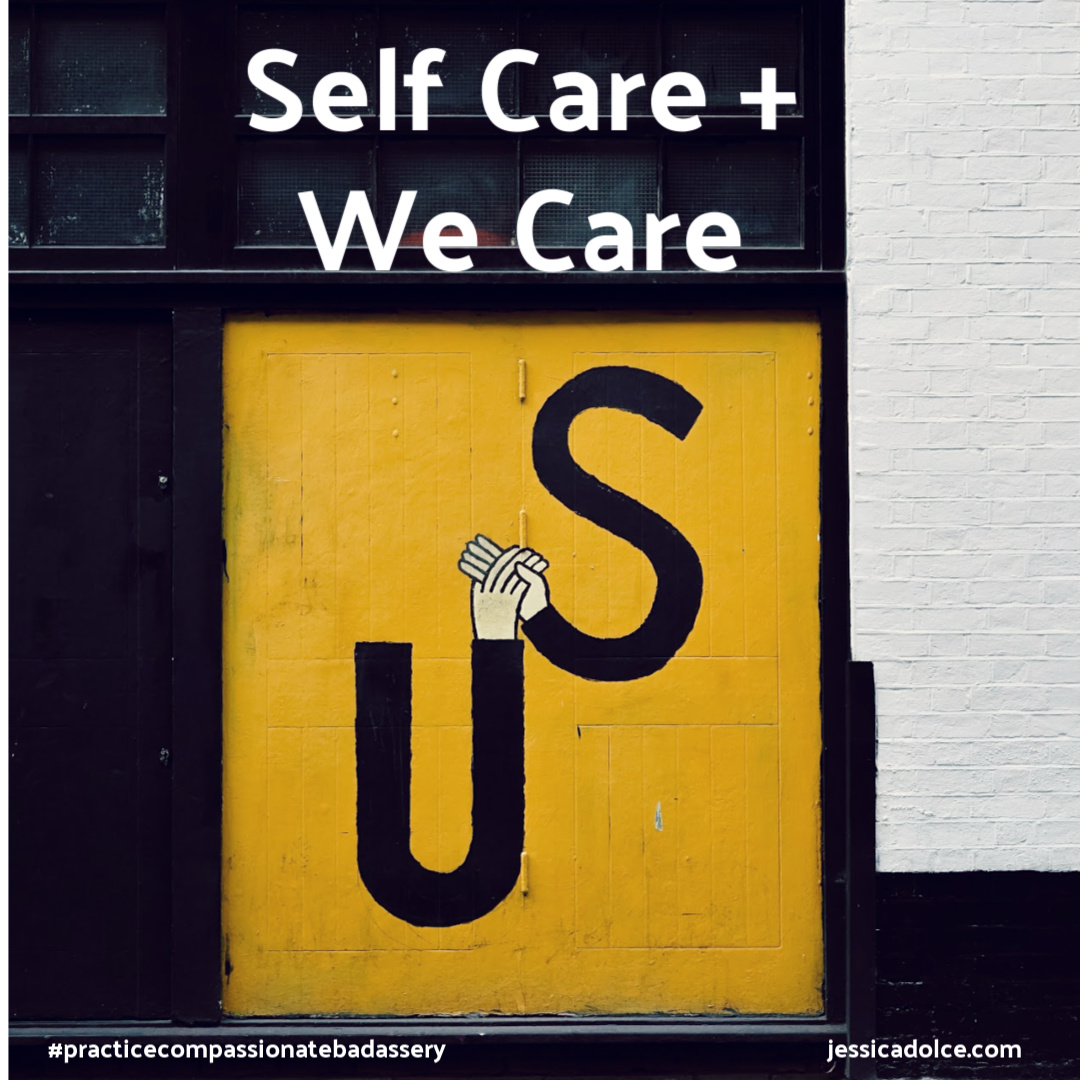Is Self-Care Letting Organizations Off The Hook?

I’m always full of questions, but lately these are at the top of my mind:
Who benefits when we don’t ask the right questions? And how does this potentially uphold the status quo?
Here’s what I mean: have you ever questioned why everyone is so focused on self-care as the solution for compassion fatigue?
Who does it benefit when self-care is the ONLY way we’re taught to manage this predictable byproduct of our work?
The answer is simple:
The message staff gets is: If you don’t take care of yourself, it’s your fault that you have compassion fatigue.
That’s just not accurate.
To be clear, self-care IS critically important and it’s the foundation of everything I teach (because no one can take care of you for you. Sorry, no one is coming to save your ass).
I love the pants off of self-care.
But, all the self-care in the world won’t matter if:
– You have a job description that has no boundaries (how many people would it really take to accomplish everything that’s been assigned to you?) and you never have time off to DO self-care.
– Or you work in an unsafe environment (physically and/or psychologically) with low pay, no benefits, and you’re treated like an unskilled, expendable resource. “Churn and burn” baby!
– Or you have toxic coworkers and you don’t feel safe asking for help. Or a cruel boss that tells you that if you “really loved animals”, you wouldn’t need to take a break.

When organizations focus ONLY on self-care as the solution for compassion fatigue, then they get to blame staff for having compassion fatigue and wash their hands of this complex issue.
Organizations have a responsibility to create a healthy, ethical work environment where individual self-care efforts are supported and strengthened by the organization’s efforts to treat their staff like the valuable resource they are through: education, mentoring and supervision, fair policies, healthy boundaries and time off, safe equipment, appreciation, conflict resolution, mental health benefits, adequate pay, and trauma-informed support.
I’m not saying it’s easy or that organizations can make these changes overnight, but they’ve got to step up to the plate.
Addressing CF isn’t just an altruistic move. It benefits the organizations when they tackle one of the root causes of expensive issues like turnover and presenteeism.
If we want to address compassion fatigue effectively – which benefits everyone – then we always need to be looking at this issue from the individual AND the organizational level.
The researchers backs that up. Self-care alone isn’t enough.
Self-care is necessary, but it’s insufficient on its own.
So if anyone tells you that self-care is the be all, end all of compassion fatigue management, just ask them: who does that benefit?
Psst, just one more time for the folks in the back…you still have to do self-care, just be sure to examine the systems you’re in too!
Let's Stay Connected.
Sign up for ideas, updates, and your free copy of The ABCs of Self Care Workbook!
I heart boundaries and will never sell your email address. Unsubscribe at any time.

